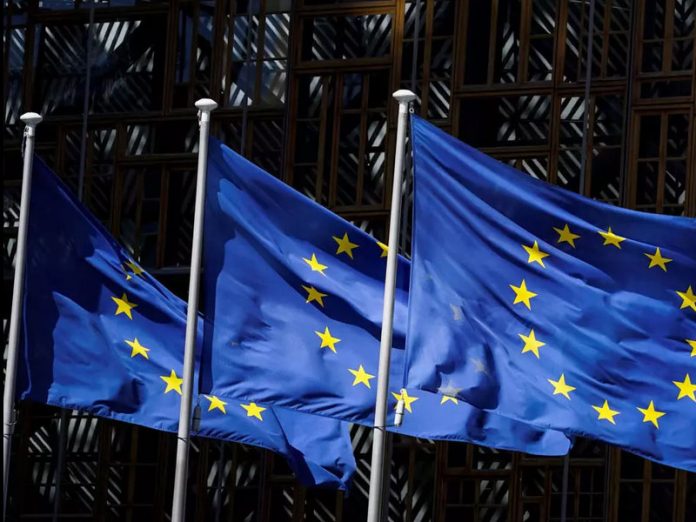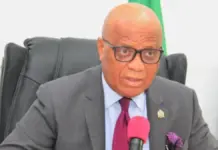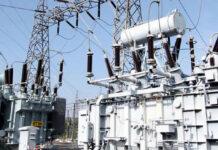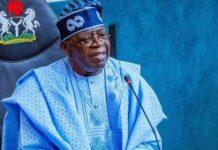To counter China’s influence on the continent, the European Union (EU) is working on a €20 billion ($22.7 billion) financing package to support African transport networks, as well as energy, digital, education, and health projects.
According to officials familiar with the discussions, member states have yet to commit to financing the infrastructure plans, according to a Bloomberg report.
Read Also: Sylvester Oromoni died as result of his parents, school’s negligence, says pathologists
According to a draft of the package seen by Bloomberg, the bloc’s plan includes strategic corridors, international submarine cables, new energy interconnections, and renewable energy investments in Senegal, Cote d’Ivoire, Egypt, Morocco, and Kenya.
But Nigeria, Africa’s most populous nation and the biggest economy on the continent, was missing on the list of countries to directly benefit from the move, It was observed.
Last year, President Muhammadu Buhari said Nigeria’s low share of Foreign Direct Investment (FDI) flow to Africa between 2015 and 2019 was a cause for concern. Buhari, who spoke at a retreat organised by the Nigeria Extractive Industries Transparency Initiative (NEITI) in Uyo, the Akwa Ibom State capital, described the situation as unacceptable.
Despite having the biggest economy in Africa, Nigeria only received four per cent, which was about $3 billion of the $75 billion invested in the continent in the first term of Buhari’s administration.
According to the United Nations Conference on Trade and Development (UNCTAD) 2020 World Investment Report, FDI flows to Nigeria showed a 48.5 per cent decrease compared to the previous year.
Read Also: ASUU threatened another strike
Nigeria has a poorly developed transport and energy infrastructure, resulting in high operating costs, an inefficient judicial system and unreliable dispute settlement mechanism as well as serious security concerns.
Secretary to the Government of the Federation (SGF), Mr. Boss Mustapha, represented Buhari on the occasion.
However, the report stated that the investment was aimed at underpinning the new partnership that the EU and Africa want to seal at a February 17-18 summit in Brussels.
African leaders have prioritised roads, railways and bridges, but some EU governments face national budgetary constraints that make it hard for them to pledge significant funding ahead of the meeting.
Others, including Germany, the report stated, remain sceptical about the readiness of some of the proposals, officials added.
The EU list included about 60 projects meant to relaunch the relationship, after months of tensions over vaccine supplies and patents, as well as travel restrictions aimed at stemming the COVID-19 pandemic.
Most of the funds in the EU’s plan would go to the Global Gateway, Europe’s initiative to rival China’s massive investment plan in the continent. The bloc is seeking to mobilise €150 billion euros by 2027 from various sources.
EU offers “quantitative and qualitative advancements on infrastructure financing,” according to the document.
The bloc promises “substantial funding” to invest in projects and for technical assistance to identify new ones. The EU also wants to attract private money by using public funds as guarantees and involving African development banks.
Read Also: Group urges political parties to field Abia North indigenes for governorship
China promised in 2018 around $60 billion in loans over a three-year period to finance roads and bridges in Africa. But China’s Belt and Road plan, Bloomberg said, has been controversial from the outset “due to corruption and debt sustainability challenges” faced by host governments.
The EU has picked projects focused on key trade areas selected by African nations according to their level of readiness, their potential impact, and the possibility of attracting member states’ money and private funding, an EU official said.
The list includes the Dakar-Abidjan corridor in West Africa; the Libreville-Kribi-Douala-N’Djamena area that links Gabon, Cameroon and Chad; and the area between Mombasa and Kisangani in Kenya and Democratic Republic of Congo.
The trading bloc wants to show that they are putting money behind their promises by offering a solid package during the summit.
But the commission has been struggling to bring member states on board, in spite of intense discussions. Two-thirds of the financing should come from national coffers, the commission told national capitals.
Europe would also propose building an international submarine fibre cable to connect the EU with Africa along the Atlantic coast, and fostering access to clean energy pools across the continent.
The EU would also offer new security cooperation. As part of more comprehensive effort to support African armed forces, European countries would deliver military equipment in the coming months “including material designed to deliver lethal force,” according to the draft text.
Migration would be another top issue during the summit next week. EU countries will mobilise €4.4 billion to fight human traffickers, enforce voluntary and forced returns, and strengthen border management.
One of the European demands is to secure a bigger role for its border agency, Frontex, in African nations, the report stressed.
On Valentine’s Day, These Couples Lead with Love
Read Also: Nigeria, Argentina talk about Boko Haram, ISWAP—Ambassador Ikurusi
Today, February 14, couples and people in meaningful relationships, the world over, celebrate the essence of their union/affair, anchored on love and its other essential elements, such as patience, consistency, perseverance – in sickness and in health – till death parts them.
It is in view of this that some of Nigeria’s leaders, who despite the many challenges buffeting leadership, have continued to lead with love through personal examples with their spouses in power, are singled out.
The Buharis: Honest and Critical in Love
For President Muhammadu Buhari and his wife, Aisha, it is another moment to share quality time together. However, this time, it would be love in all the rooms, not just in the other room.
This couple has remained one of the ‘realest’ in the nation’s history, who despite their family values, openly tell each other the truth and disagree without being disagreeable. Today, they deserve all the love in the spirit of the season.
The Osinbajos: Consistently in Love
The nation’s second family, Vice President Yemi Osinbajo and his wife of many years, Dolapo, have a way of making other couples green with envy as they still boast and share the love of their youth.
Thus, this Valentine’s day, provides another opportunity to publicly share personal memories of the love that has lasted this long. They are the couple many would like to emulate, as they always appear happy and comfortable around each other.
The Sanwo-Olus: Peacefully in Love
Who can begrudge Governor Babajide Sanwo-Olu of Lagos State and his wife, Dr. Ibijoke? This quiet and unassuming couple, has endeared themselves to Lagosians. Their sheer simplicity is both endearing and disarming to anyone, who comes in contact with them.
From their affectionate whispers to the gentle touch and effective eye contacts, love is all over their expressions. This Valentine’s is theirs to cement further the love that binds them together.
Read Also: FG started work on 21 roads earmarked for NNPC’s N621bn fund
An Inseparable Duo
From the campaign podium, to the Government House in Asaba, Delta State, Governor Ifeanyi Okowa and his wife, Edith, typify a case of the the family that works together, stays together.
For this unassuming couple, love and commitment to each has taken them this far. What’s more? The flame of their love still burns brightly. Therefore, on this Valentine’s day, they remain united in love as they have always been from the very beginning.
Join Television Nigerian Whatsapp Now
Join Television Nigerian Facebook Now
Join Television Nigerian Twitter Now
Join Television Nigerian YouTUbe Now





